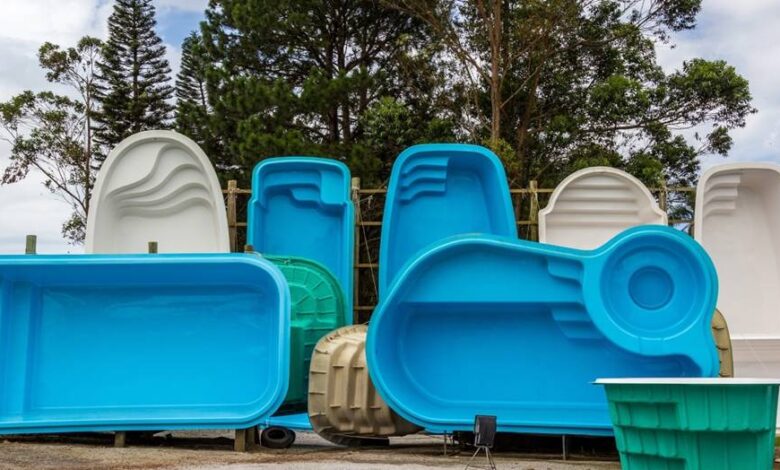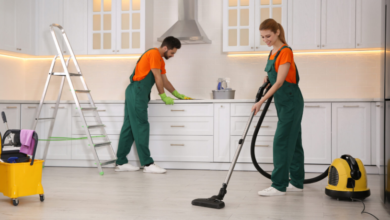Types of Pool Construction Materials: A Guide to for Your Dream Pool

Building a swimming pool is a massive investment and a decision that will transform your backyard and lifestyle. While the shape and size are exciting to plan, one of the most critical choices you’ll make is the type of construction material. The material you choose will determine everything from the pool’s initial cost and durability to its aesthetic appeal and ongoing maintenance requirements.
In Australia, we’re spoilt for choice with several popular pool construction materials, each with its own unique set of pros and cons. Understanding these differences is key to making an informed decision that will serve you and your family for decades. Let’s dive into the most common types of pool construction materials, helping you figure out which one is the perfect fit for your dream pool.
Concrete (Gunite or Shotcrete) Pools
Concrete pools are the undisputed champions of customisation. If you can dream it, you can build it with concrete. This material is also known as Gunite or Shotcrete, which are different methods of applying the concrete mix.
How They’re Built: A concrete pool starts with a steel reinforcing bar (rebar) frame laid out in the desired shape. A high-pressure hose then sprays a special concrete mix (Gunite is applied dry and mixed with water at the nozzle, while Shotcrete is pre-mixed) over the rebar. This creates a solid, durable shell. The shell is then finished with a surface of your choice, such as plaster, tiles, pebblecrete, or polished aggregate.
The Pros of Concrete Pools:
- Unlimited Customisation: You’re not restricted by size or shape. Concrete allows for any design, from freeform pools with rock features to sleek, geometric lap pools.
- Incredibly Durable: A well-built concrete pool is designed to last a lifetime. The solid shell is resistant to punctures and damage.
- Variety of Finishes: The wide range of finishing options means you can achieve almost any look and texture you desire.
The Cons of Concrete Pools:
- Higher Upfront Cost: They are generally the most expensive option due to the labour-intensive construction process.
- Longer Construction Time: Building a concrete pool can take several months, as the concrete needs time to cure properly at each stage.
- More Maintenance: The porous nature of concrete requires more chemical maintenance to prevent algae growth and a finish that will need to be redone every 10-15 years.
Fibreglass Pools
Fibreglass pools have become incredibly popular in Australia, and for good reason. They offer a fast installation time and a durable, low-maintenance solution.
How They’re Built: These pools are pre-fabricated shells made from layers of fibreglass, resin, and gel coat. They arrive on-site as a single unit, which is then lowered into the excavated hole. The plumbing and backfilling are completed, and the pool is ready to fill.
The Pros of Fiberglass Pools:
- Rapid Installation: The entire process, from excavation to filling, can often be completed in as little as 1-2 weeks.
- Smooth, Non-Porous Surface: The gel coat finish is smooth and non-porous, which is highly resistant to algae growth. This means less chemical usage and less time spent scrubbing.
- Lower Maintenance Costs: The durable surface doesn’t require replastering or resurfacing like a concrete pool.
The Cons of Fiberglass Pools
- Limited Shapes and Sizes: You’re restricted to the pre-made designs offered by the manufacturer. While there is a good range, you won’t have the complete customisation of a concrete pool.
- Potential for “Fibreglass Cracks”: While rare, minor cracks or “crazing” can sometimes appear in the gel coat over time.
- Can Float: If the ground around the pool becomes oversaturated with water (e.g., in a flood), a fibreglass shell can potentially lift or “float” out of the ground if not properly installed with a hydrostatic valve.
Vinyl Liner Pools
Vinyl liner pools are a great option for those on a tighter budget who still want a clean, smooth, and customisable pool.
How They’re Built: A vinyl liner pool starts with a prefabricated frame made of steel or polymer panels, which are assembled on-site. The floor is covered with sand or vermiculite, and a thick vinyl liner is then vacuum-sealed into place, creating a watertight barrier.
The Pros of Vinyl Liner Pools:
- Lower Initial Cost: Vinyl liner pools are typically the most affordable option upfront.
- Smooth Surface: The liner is smooth and non-porous, making it comfortable to swim in and easy to clean. It also resists algae growth well.
- Quick Installation: Like fibreglass, they can be installed relatively quickly compared to a concrete pool.
- Easy to Renovate: If the liner becomes old or damaged, it can be replaced with a brand new one, giving your pool an instant facelift at a fraction of the cost of a full pool renovation.
The Cons of Vinyl Liner Pools:
- Less Durable: The vinyl liner can be punctured or torn by sharp objects, requiring a patch or full replacement.
- Limited Life Span: Liners typically need to be replaced every 10-15 years, which adds to the long-term cost of ownership.
- Fading: The liner’s colour and pattern can fade over time, especially in direct sunlight.
Pool Maintenance and Cleaning
No matter which material you choose, ongoing maintenance is crucial for keeping your pool in pristine condition. While each type has slightly different needs, the core tasks remain the same:
- Water Chemistry: Regularly testing and balancing the pH, chlorine, and alkalinity is essential to prevent algae and bacteria growth.
- Filtration: Running your pool’s filter for an adequate amount of time each day is non-negotiable for clean, clear water.
- Physical Cleaning: This involves skimming leaves and debris from the surface and brushing the walls and floor to prevent the build-up of dirt and algae.
For a more hands-off approach, a robotic pool cleaner can do all the hard work for you, automatically scrubbing and vacuuming the pool’s surfaces. When choosing a cleaner, it’s essential to pick one that’s suited to your specific pool type and size. For those who want the ultimate in pool care convenience, investing in the best pool cleaner will ensure your pool is always sparkling and ready to swim in.
Summary: Which Pool Material Is Right for You?
The right choice for your pool will depend on your budget, backyard size and design, and how much maintenance you’re prepared to do.
- Choose a concrete pool if you have a unique or challenging space and an unlimited budget for a truly bespoke, custom design.
- Go for a fibreglass pool if you value speed of installation, a smooth and comfortable surface, and want a low-maintenance, durable pool with a beautiful finish.
- Consider a vinyl liner pool if you are looking for the most budget-friendly option and are happy with the trade-off of a potential liner replacement down the track.
Ultimately, each of these pool construction materials can create a stunning and functional backyard oasis. By weighing up the pros and cons of each, you can make the right decision for your home and ensure your new pool is a source of joy for many years to come.




